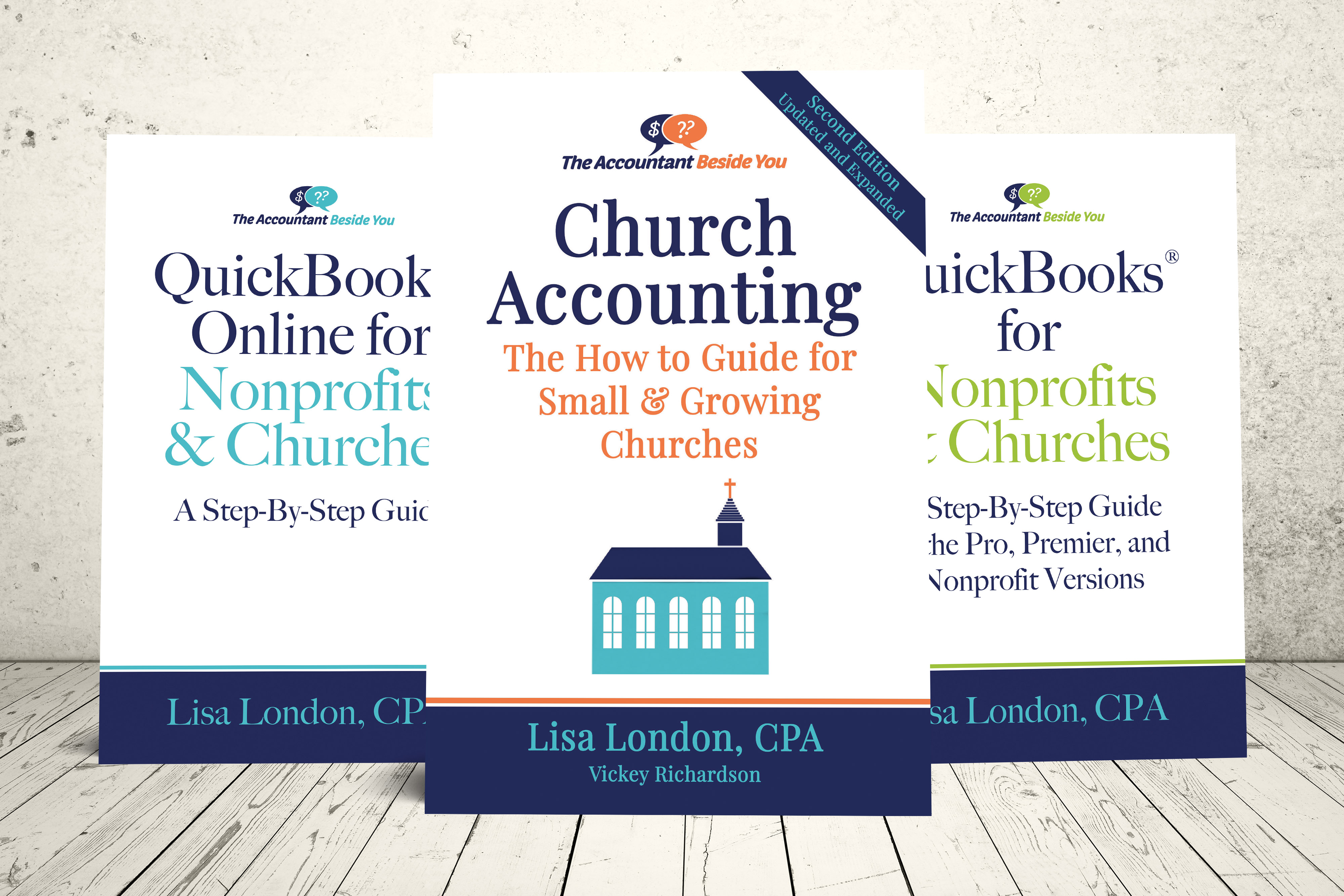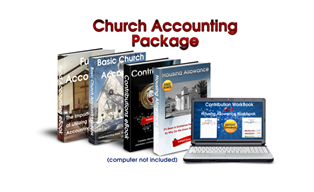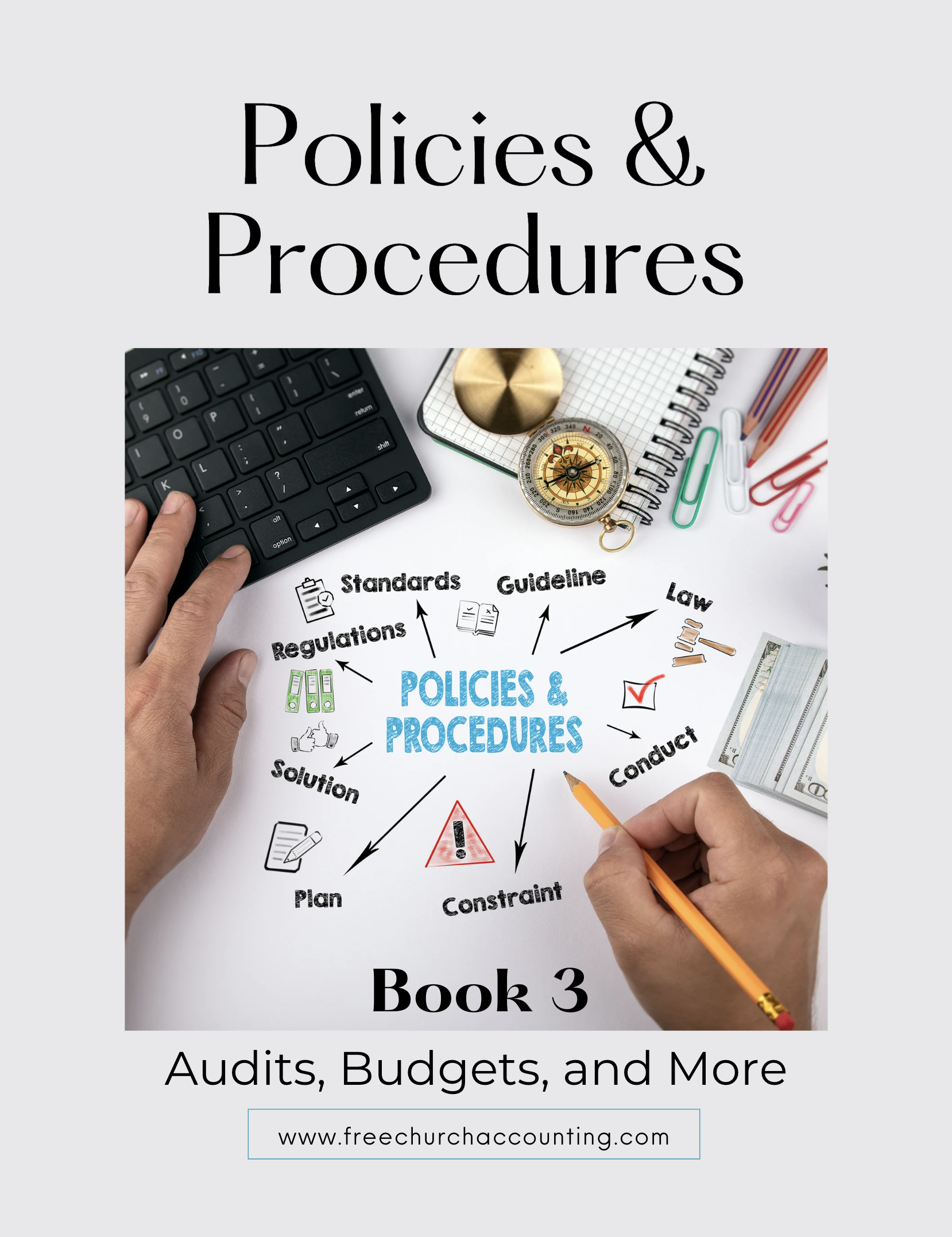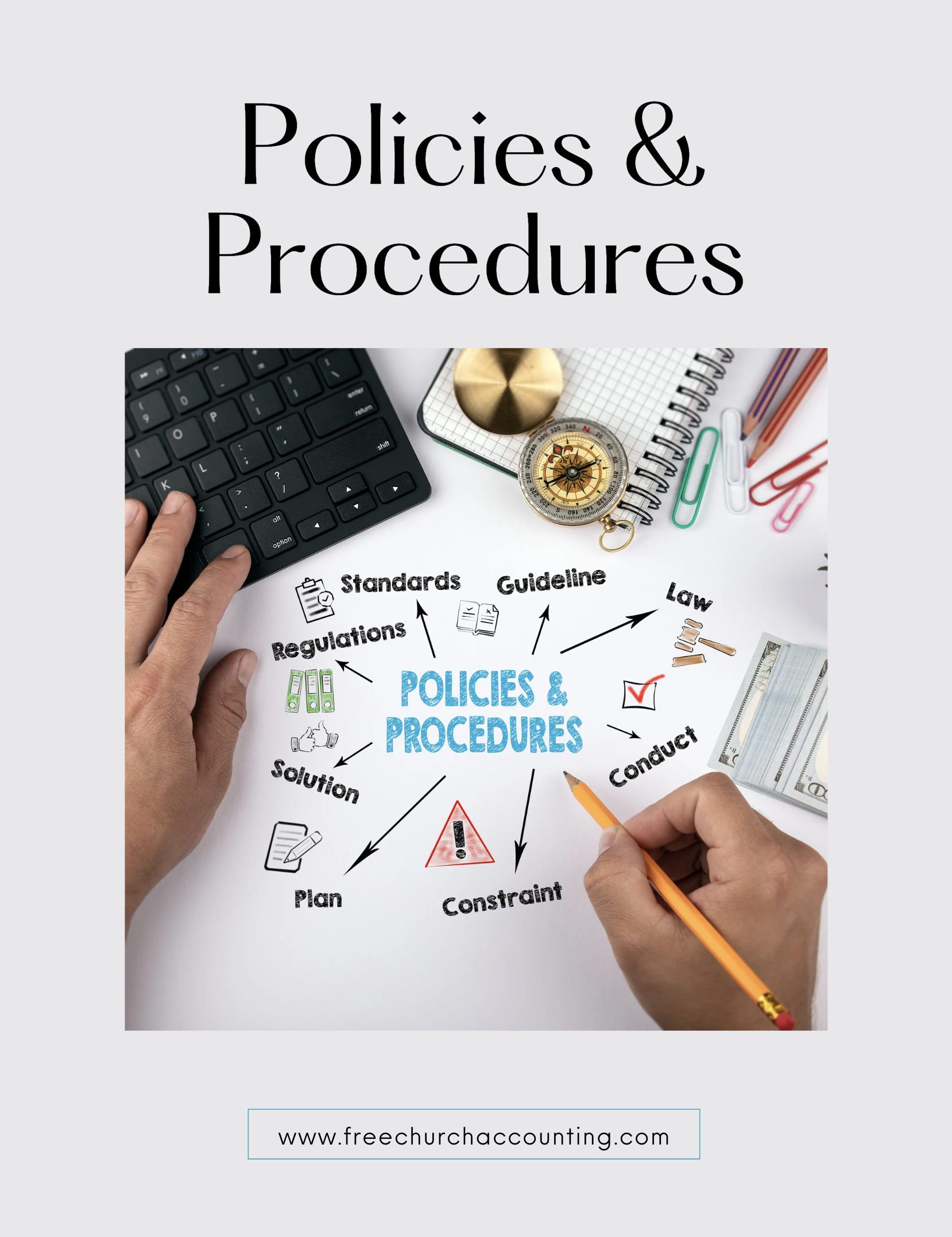Church Fund Accounting Guide
by Alex Acree, founder of EmpowerT3
A “fund” in church fund accounting is a unique designation of money that is tracked separately that everything else, but is still a part of your larger total.
To use an example from personal finance, let’s say you have income from your job, your expenses are your bills, but then you have a vacation fund you are stashing money away to every month.
This vacation fund has its own income, expenses, and ongoing balance, but is still a part of your overall cash balance at the bank.
Using the above example it is easy to imagine what a fund is, so how does this translate to your church or nonprofit? To find out, answer this question, “How much money do I have set aside for ____?”. The answer to the blank is probably going to be a fund you will want to track for your organization.

Coupon!
Here is a 10% discount code for all the ebooks, spreadsheets, and packages on this site:
FCA
Note: click on "PACKAGES" in the top navigation bar for a list of all of the ebook and spreadsheet packages on this site!
3 Basic Funds often used in Church Fund Accounting:
Most churches work with three funds: General, Missions, and Building.
- The general fund is where most of the income comes in to, and most of the expenses are paid from. Another name for this would be the Administrative fund, or something of the like.
- Missions is any outreach the church does, whether it be local or global. It’s possible that the missions fund has specified donations or fundraisers which allocate money to its purpose, or maybe you transfer money to it from the general fund every so often.
- Last is the building fund, which is used for capital improvements and operational costs; like plumbing repairs, landscaping, etc.. This can also (potentially) have donations to it, or be allocated from the general fund by the church.
Church Fund Accounting Examples:

Each of these funds has its own balance, assets, debt, income, and expense, making it its own “mini-organization” within your larger organization.
By using a church fund accounting system, you would be able to not only track the ins and outs of the fund, but be able to look at your bank balance and know how much is set aside for each designated purpose.
For instance, if you have $1,000 in your checking account, how do you know how much is set aside for your missions fund? Using a fund accounting system you could easily see that while $1,000 is the total, $200 is set aside for your building fund, $300 for missions, and the remaining $500 for general purposes.
The Policies and Procedures Package includes an ebook on budgets and audits. It includes details on the different types and categories of budgets and budget tips.
This ebook is included in the Policies and Procedures Package. However, you can purchase it by itself for only $7.95 by clicking the ADD TO CART button below!
The Audits, Budgets, and More ebook is also part of a larger "Policies and Procedures" Package" that is packed full of valuable information and for a limited time you can purchase all 5 ebooks and 8 policy templates for only $32.80
Pitfalls to Watch for in Church Fund Accounting:

Church fund accounting is extremely accurate, and a necessary component to any church or nonprofits financial records. However, there can be a dangerous side to it. The trouble comes when trying to decide what needs to be a fund, and what doesn’t. Let’s go back to the personal finance example…
I have a general fund to pay bills, and a vacation fund for traveling. What if I want to buy a new car? Or a new house? Or a new pair of clothes? Or want to know how much I have set for pet expenses? Or birthday gifts I need to buy?
You can see the potential craziness.
If each of these things had its own fund you would have a checking account full of designations, and it would be a burden to track everything independently. Back to a church…
If a church is trying to account for the general, missions, and building funds, but also 10+ other things, the operations will get out of hand… quickly. This is why setting up funds is so important for any organization. You need to make sure you are tracking things that need detail, but not overdoing it so that efficiency is lost.
Bookkeeping for Churches Package
A set of 4 ebook that covers the following topics...
- Fund accounting examples and explanations
- Best methods for tracking restrictive funds
- Basic accounting concepts
- Examples and explanations of financial statements
- Chart of Account breakdown
- How to record income, expenses, payroll, etc.
- Much more - Click here for details
Another wrench in this process is whether or not you will accept designated donations for the funds you create. If donors are allowed to designate where the money will be spent, you are legally bound to spend the money in that way.
There is a church we know of that had over 1 million dollars tied up in designated funds. This money was allocated to arbitrary things like a candle fund and money for new carpet… all good purposes, but since it was accepted for that purpose it cannot be used for anything else. That church nearly went bankrupt because while they had a large balance in their bank accounts, none of it could be spent to keep the lights on.
This does not count against a church that needs multiple funds, only against how you receive donor contributions. Although you have multiple funds that you designate money towards, you can set boundaries when receiving money that stipulates all money received will be applied to the general fund and then designated from there. So yes, there will be the person who adamantly wants their $100 to go to communion crackers… however, if this means that $100 cannot be spent for anything else, it’s probably better to let them know you are thankful for the donation but cannot guarantee it being used for their purpose, rather than be tied to spending the money a certain way.
In the end, funds are necessary and beneficial to any organization, but creating/managing them is an art-form. At EmpowerT3, we do our best to make this process as simple as possible for you so that you can focus more time and energy on your mission instead of your books.
See more information on Church Fund Accounting.
About the Author:
Alex Acree, founder of EmpowerT3. Their mission is to empower small-medium sized businesses, churches, and nonprofits to better manage their time, talent, and treasure.








